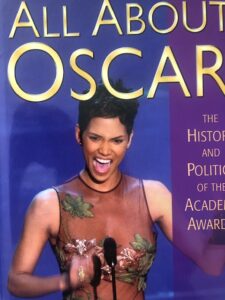Farrell on the ‘Good Fortune’ of his Career, from ‘Tigerland’ to ‘The Penguin’
Farrell presented his new film, Edward Berger’s ‘The Ballad of a Small Player,’ at the Zurich Film Fest, where he received the Golden Icon award in honor of his career achievements.

Edward Berger’s adaptation of Lawrence Osborne’s 2014 novel, The Ballad of a Smal Player, sees Oscar nominee Colin Farrell as Lord Doyle, an Irish con man and high roller in Macau whose luck, he fears, may be about to run out. Farrell, however, is still on a roll.
In a Master Class, he discussed the “extraordinary, unearned good fortune” of his life in cinema.
Growing up in Dublin, Farrell had no plans to act. “I wanted to be footballer, soccer player. I was handy enough,” he recalled. His father had played professionally for Dublin club Shamrock Rovers and sports were “the one way my father and I could have communication and relationship. It was tricky everywhere else, but when it came to football, we were good to go.”
His dream of a professional soccer career ended when, “I started drinking and smoking.” Acting came via his sister Catherine, who went to theater school. “It was the first time when I heard that she was going to study acting. It sounded ridiculous. I didn’t think it was something you could apply yourself to within formal structure.”
Farrell followed his sister to theater school. “Which gave me the chance to do something I do very well, which is drop out,” he said. “I dropped out and started working.”

Farrell was cast in the popular BBC series Ballykissangel and got his first role in Tim Roth’s directorial debut The War Zone (1999) — alongside Tilda Swinton.
But it was Joel Schumacher who changed everything, casting the still-unknown Irishman in Tigerland (2000) as a young soldier going through boot camp before Vietnam.
“Joel kind of changed my life. He wanted a bunch of unknown actors. He took a chance on an Irish kid.”
After Tigerland, Farrell’s rise was meteoric, leading to roles in Hollywood productions working alongside “childhood heroes,” from Tom Cruise in Minority Report to Al Pacino in The Recruit. “I got to work with Al Pacino in my third year of acting on film. It was pure bananas.”
The combination of sudden fame and heavy drinking nearly ended his career. “At a certain point, big Hollywood stopped calling. I got a certain reputation, which I probably earned.”
The turnaround came in Martin McDonagh’s In Bruges in 2008. “I read the script, loved it, and then I tried to talk Martin out of casting me,” Farrell said. McDonagh didn’t listen. “It was a turning point. It might have been the first job I did sober,” he recalled.
In Bruges was a hit and the role marked the beginning of Farrell’s second act, defined by more personal, often darker choices, from Yorgos Lanthimos’ The Lobster and The Killing of a Sacred Deer to his Venice-winning, Oscar-nominated performance in McDonagh’s The Banshees of Inisherin.
“I was so excited when I got the script and then I read it–‘I’ve only got five scenes,’” he recalled. “I didn’t really get it either. I thought he was a bit silly, a bit of a putz.” It wasn’t until Reeves showed him the mockup of how Farrell would look in his Penguin makeup, that the penny dropped.
Matt opened up his laptop and showed it to me. The first time I saw it, the cogs crunched. Everything in the script became clear. Every little pockmark. The character was ferocious looking, but I could imagine every aspect of the character’s life, even moving ones. It just gave me so much information,” Farrell said.

The part launched HBO’s spin-off The Penguin, where Farrell got to dive deep into the character. “I can do five hours a day riffing as the Penguin, and even my sense of humor changes. I’d call my kids in character.”
Farrell will be back as the Penguin in Reeves’ The Batman: Part II, though he says, “I’ve got even smaller role in this one. But I’m OK with that. I’ve read the script, from start to finish, and I can’t say much about it. But it’s deeper, scarier, the stakes are bigger. I’m really excited to see it.”
They shot the film on location in Macau, which was “assault on the senses. It’s incredibly loud, the colors are brash and bombastic. It’s how I felt reading the script. I kind of felt nauseous reading it as well. There’s nothing subtle about it.”
The experience left him “fairly raw…everyone was fairly wrecked by the end of it,” Farrell said, noting he is looking forward to not working for a while and spending time at home with the kids.
Reflecting on what has been an extraordinary career with its share of awards — the Golden Icon honor follows best actor Oscar nomination for The Banshees of Inisherin and best actor Emmy nomination for The Penguin. The point isn’t winning; it’s staying connected. “The nominations are the most joyous part of it, winning an award is a little bit of separation. The real juice is just being part of the community, when you and another group of actors are told: You did OK.”











